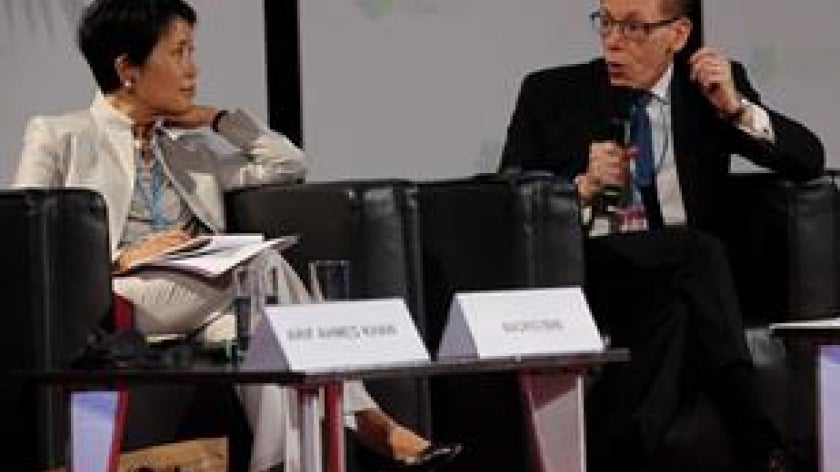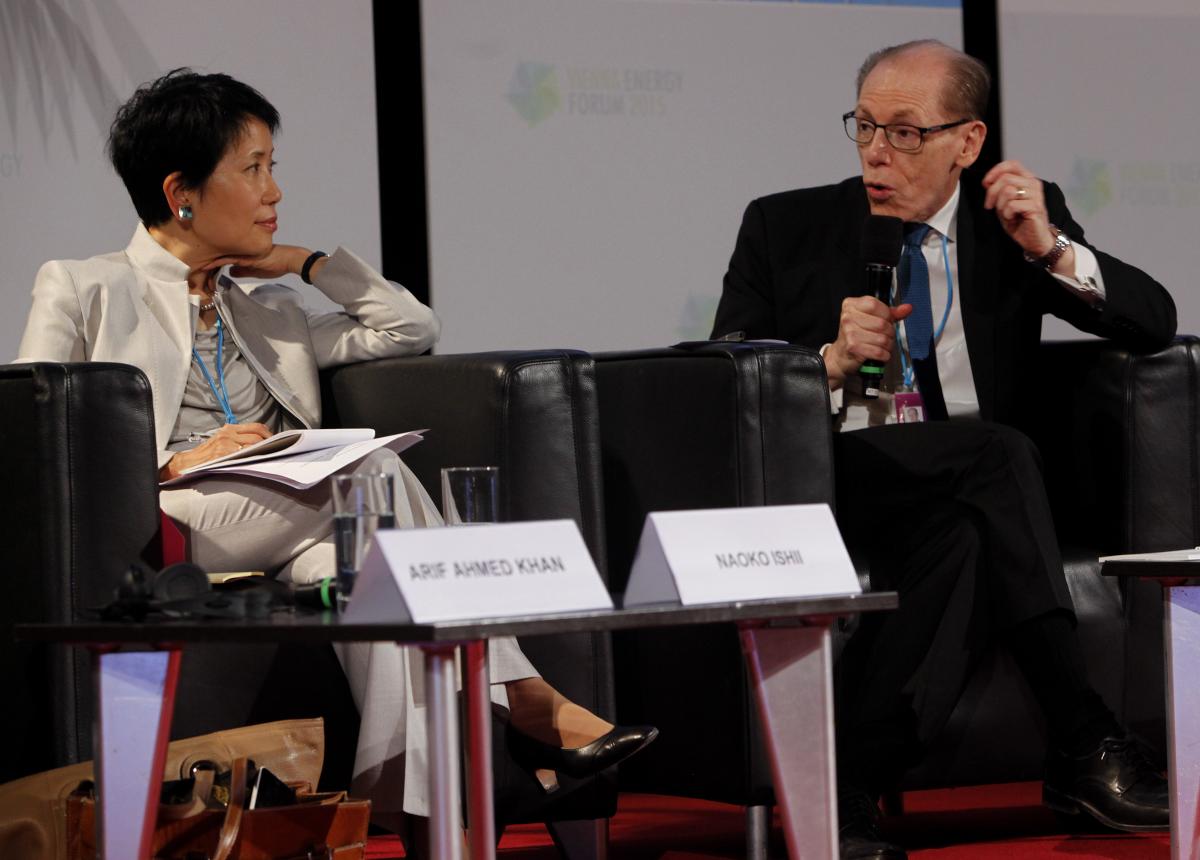
The Vienna Energy Forum 2015 brought leaders together this week for a timely debate on the topic of sustainable energy for inclusive development. The critical importance of adopting a new set of Sustainable Development Goals (SDGs) and of reaching a successful climate agreement at COP 21, both taking place later this year, was strongly emphasized.
In her keynote address, GEF CEO Naoko Ishii highlighted that both processes seek to answer the same question: how we can achieve prosperity today without undermining our future opportunities?
“The planetary boundary framework led by Johan Rockstrom tells us that to avoid abrupt changes on a planetary scale that will undermine our ambitions for sustainable development in the future, we must stay within safe planetary boundaries, be it a stable climate system, safeguarding the integrity of biodiversity, the global water cycle, or the health of soils,” she said.
She also highlighted the New Climate Economy Report led by former Mexican President, Felipe Calderon that came out last year, and noted its emphasis on the importance of having credible policies, financing, and leadership.

In terms of energy systems, the Vienna Energy Forum is an excellent opportunity to discuss how to achieve these. Ms. Ishii noted that while renewables are becoming cheaper, a strong and clear policy signal that fossil fuel based energy systems need to be phased out is required. She also emphasized energy efficiency as an area where the GEF, in coordination with the SE4ALL initiative, is providing significant support for rapid improvements across a range of sectors, including for air conditioners, refrigerators, electric motors, transformers and information technology.
Ms. Ishii placed a special emphasis on the role of finance noting that scarce public resources must be deployed in such a way that they help catalyze the necessary transformation. From the GEF’s experience, she mentioned three types of interventions that have been particularly helpful: (i) first, interventions that help reduce perceived—or real—risks of low-carbon investments; (ii) second, interventions that build capacity in local banks to finance renewable energy or energy efficiency projects; (iii) and finally, interventions that help aggregation and can make a big difference.
In concluding her key-note, Ms. Ishii emphasized that 2015 is only the beginning. “Significant additional actions in the coming decades over and above what countries have already indicated are needed if we are to achieve the two-degree target. It is simply not enough to put the world on autopilot after Paris,” she said. Highlighting the need for integrated solutions she quoted the encyclical issued by the Pope earlier in the week, which stated that “it is essential to seek comprehensive solutions which consider the interactions within natural systems themselves and with social systems.”